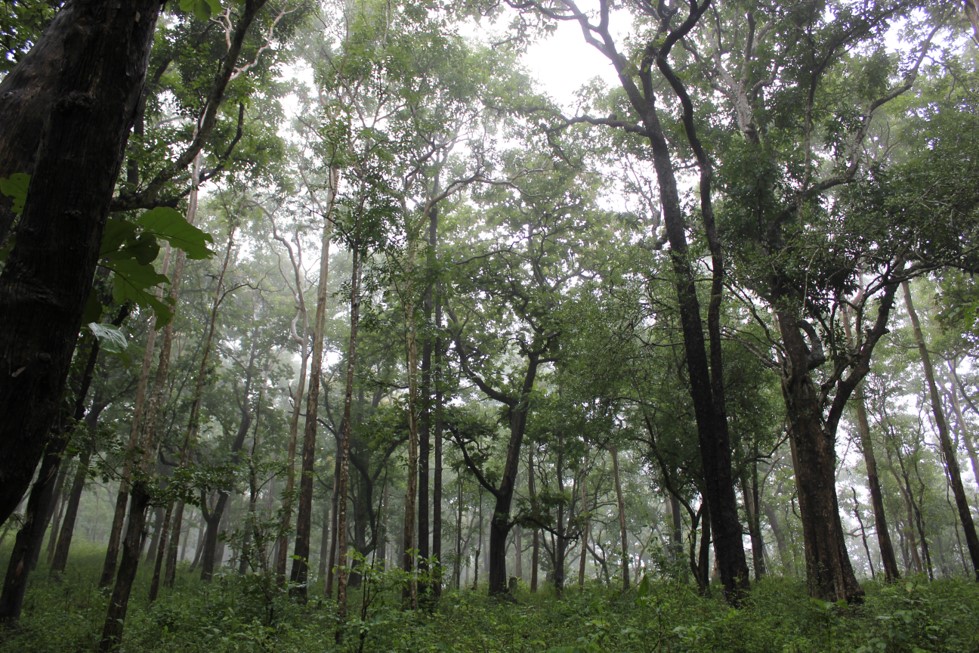Tropical forest plant communities do not fit into dominant theoretical paradigms
Wed, 2017-10-04 10:13
Plant community in a tropical dry forest in southern India. Photo Credit: Sandeep Pulla
Sandeep Pulla and colleagues argue that tropical forest plant communities do not fit into dominant theoretical paradigms
For nearly a century, ecologists have puzzled over how plant communities are structured. Niche theory, a dominant view today, suggests that species within a community have distinct niche (e.g. resources) requirements, allowing them to coexist. Sandeep Pulla (a PhD student), his colleagues H S Suresh and H S Dattaraja from Prof Sukumar's lab at CES tested this hypothesis using data from a tropical dry forest tree community.
They found that although several dominant species showed niche specificity, the niches of several species overlapped more than expected by chance.
Even the niche differences, when examined closely, seemed unlikely to have resulted from past competitive interactions, as predicted by the niche theory.
Nor were the results consistent with the neutral theory -- another dominant view that species in a community have identical niche requirements but are also demographically identical on a per-capita basis.
Authors suggest that the evidence from this and other tropical forest studies is more consistent with a relatively obscure, but more parsimonious, view that emphasizes the individualistic and idiosyncratic relationship between a species and its environment -- based on its evolutionary and biogeographic history -- independent of other species present in the community it's currently found in.
This work was published in the journal Ecology.
Citation: Pulla, S., H. S. Suresh, H. S. Dattaraja, and R. Sukumar. 2017. Multidimensional tree niches in a tropical dry forest. Ecology 98:1334–1348.
Link: http://onlinelibrary.wiley.com/doi/10.1002/ecy.1788/abstract

Add new comment